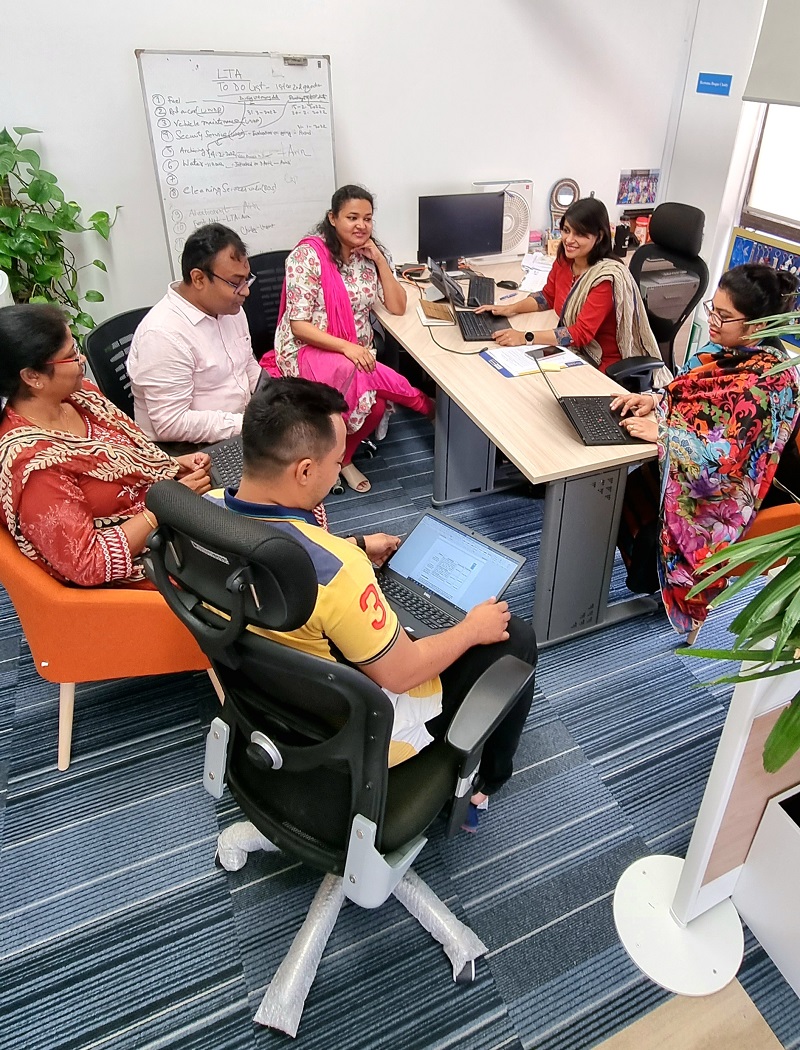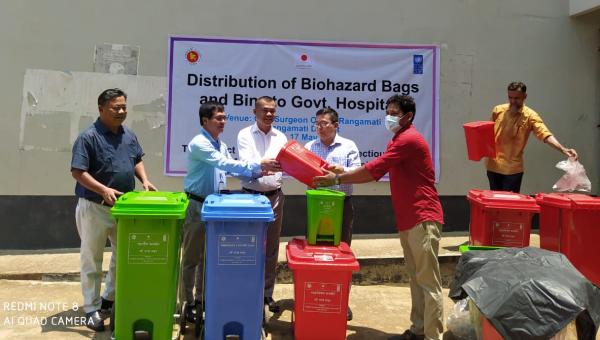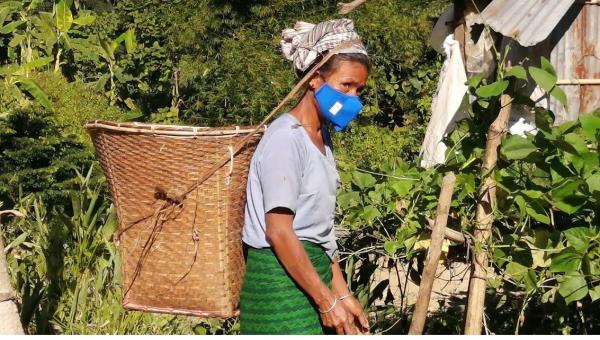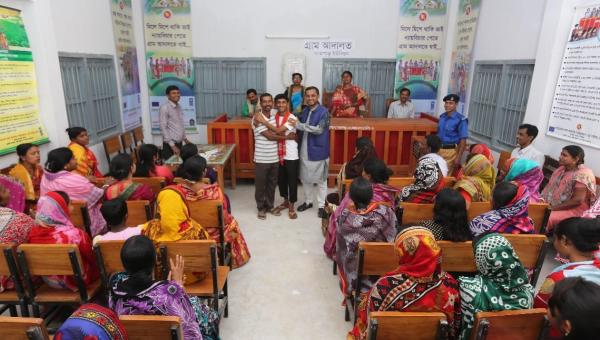National Adaptation Plan (NAP)
Recognizing that climate impacts are undercutting hard won human development gains, Bangladesh has already taken strides on adaptation planning over the last decade, by implementing the National Adaptation Plan of Action (NAPA), setting-up climate change trust funds, and pioneering community based adaptation approaches. However, institutional arrangements and a coordinated strategy for mid- and long-term climate change adaptation investment are not yet in place.
In order to meet this gap Formulation and Advancement of the National Adaptation Plan (NAP) Process is being executed by the Department of Environment and financed by the Green Climate Fund (GCF).NAP will allow Bangladesh to identify country-specific adaptation needs; develop and implement strategies to address the adaptation needs as well as help her decide on actions to protect vulnerable communities.
Expected Outcomes
NAP is a complex process which requires a strong level of cooperation between government agencies, civil society, academics and inclusion of the vulnerable communities, this briefing note is aimed at providing a push to formulate NAP, identify key points for consideration in the NAP process and encourage the participation of cross-sectoral experts. Keeping this mind, the project’s expected outcomes are.
Outcome 1: Strengthened institutional coordination and climate change (CC) information and knowledge management for medium- to long-term planning.
Outcome 2: Adaptation options appraised and prioritized, and the National Adaptation Plan formulated.
Outcome 3: Climate risk-informed decision-making tools developed and piloted by planning and budget departments at national and sectoral levels.
Outcome 4: Nationally appropriate adaptation investments tracking mechanism set up and financial plan for mid- and long-term CCA implementation prepared.
Key Milestones Toward NAP Process
| Year | Development | |
| November 2005 | Submission of National Adaptation Programme of Action (NAPA) | |
| June 2009 | NAPA Updated | |
| September 2009 | Bangladesh Climate Change Strategy and Action Plan (BCCSAP) Approved | |
| September 2015 | The Nationally Determined Contribution of Bangladesh (NDC -2015) Submitted | |
| 2015 | Roadmap for Developing a National Adaptation Plan for Bangladesh Developed | |
| December 2015 | Inclusion of Climate change adaptation (CCA) in the Seventh Five Year Plan (2016-2020) | |
| March 2017 | Stocktaking for National Adaptation Planning (SNAP) Process Conducted | |
| September 2018 | Third National Communication of Bangladesh Submitted to UNFCCC | |
| May 2019 | Formulation and Advancement of the National Adaptation Plan (NAP) Process initiated. |
Project Benefeciaries
The Ministry of Environment and Forests, Ministry of Finance, Ministry of Planning and key personnel working on climate change adaptation relevant programming in water resources, agriculture and food security, coastal zones, and urban habitation (the “priority sectors”) will be the beneficiaries of this project.
Priority Sectors: (a) Water Resources, (b) Agriculture (including sub-sectors such as crops, forestry, fisheries, and livestock), (c) Communication and Transportation, (d) Physical Infrastructure (including education infrastructure), (e) Food and Health Security, (f) Disaster Risk Reduction (g) People’s Livelihoods, (h) Urban Habitation and Built Environment (including water supply, sanitation and hygiene) and (i) Education.
Project Components
Prioritized NAP components include (i) establishing an inter-institutional NAP coordination mechanism, (ii) enhancing climate data and use in planning, (iii) carrying out sectoral, regional and ecosystem-level vulnerability assessments, drafting a NAP, based on consultations, (iv) developing sectoral action plan and budgets, (v) doing appraisal and costing of adaptation options with updating the Climate Fiscal Framework and (vi) establishing a monitoring framework for the NAP process.
Objective
NAP will gather and analyse information, develop risk scenario, generate experience and science-based adaptation strategies in line with Bangladesh’s priorities outline in SDG, Delta Plan 2100, Perspective plan, five-year plan and its ambition to graduate from LDC to middle-income countries. Thus the project has two fold objectives;
Formulate the Bangladesh National Adaptation Plan with a focus on medium to long term adaptation investment and Enhance national capacity for integration of climate change adaptation in planning, budgeting and financial tracking process

 Locations
Locations




















